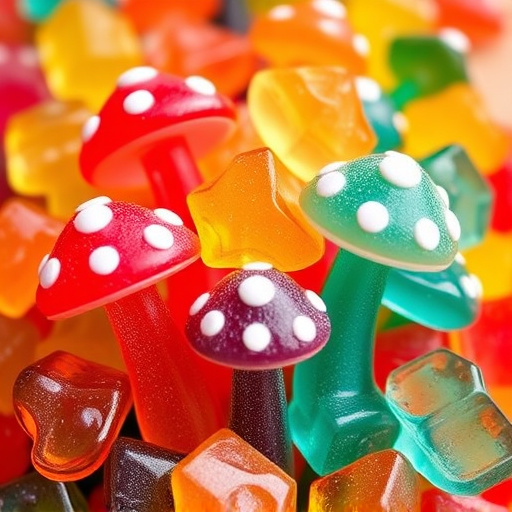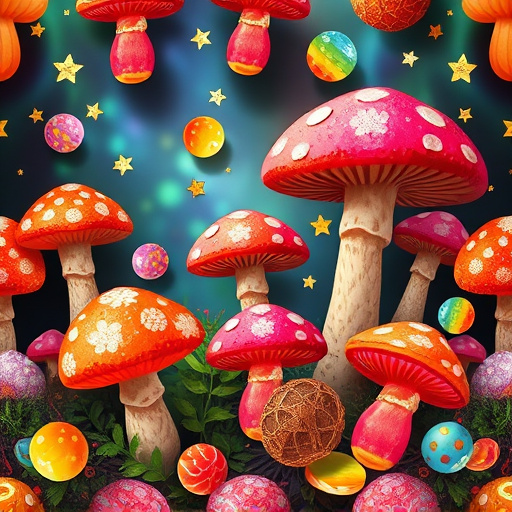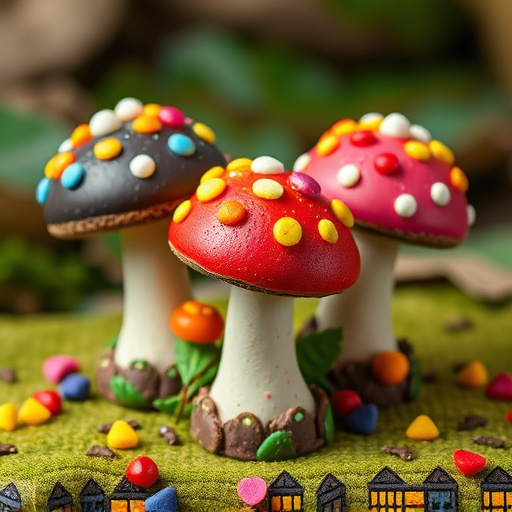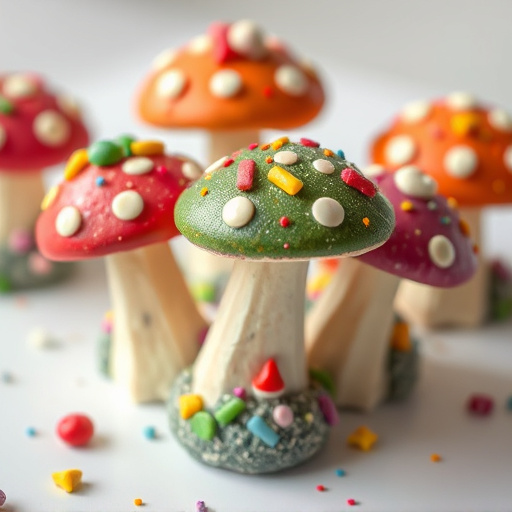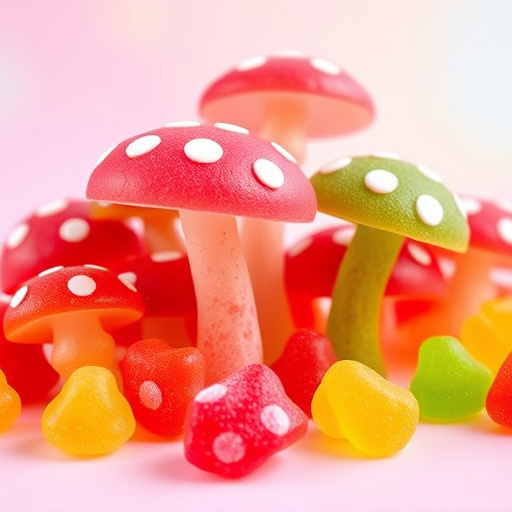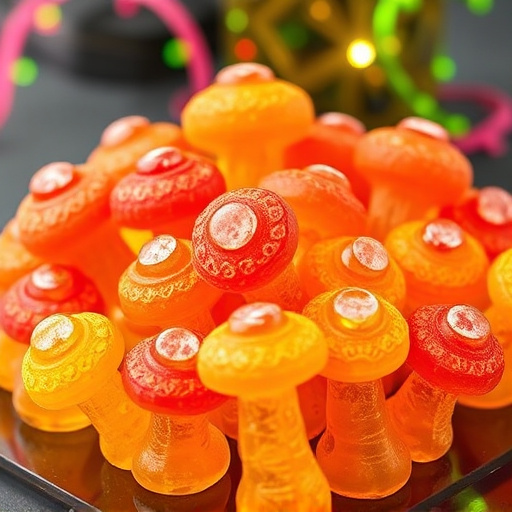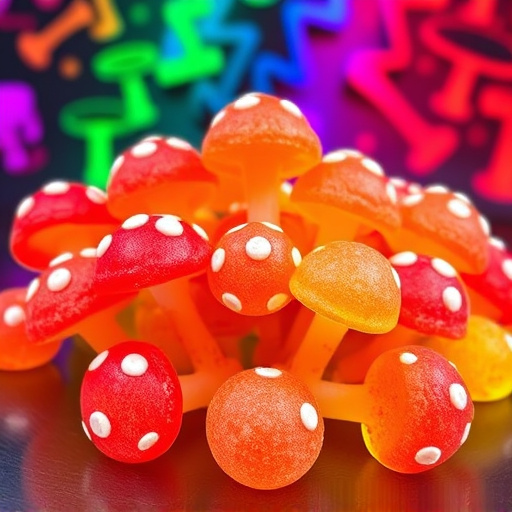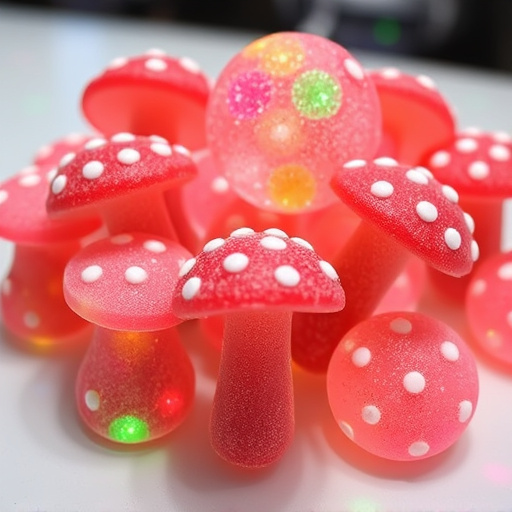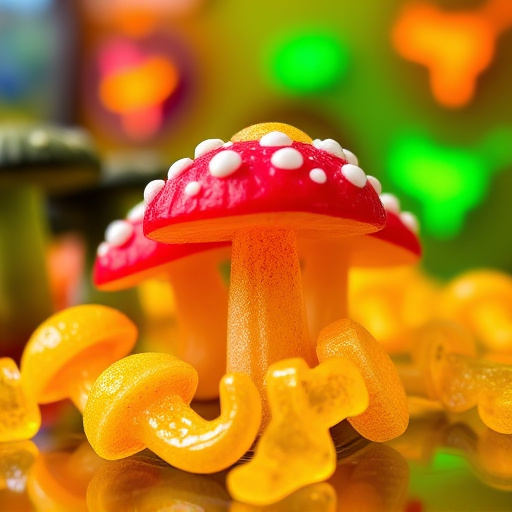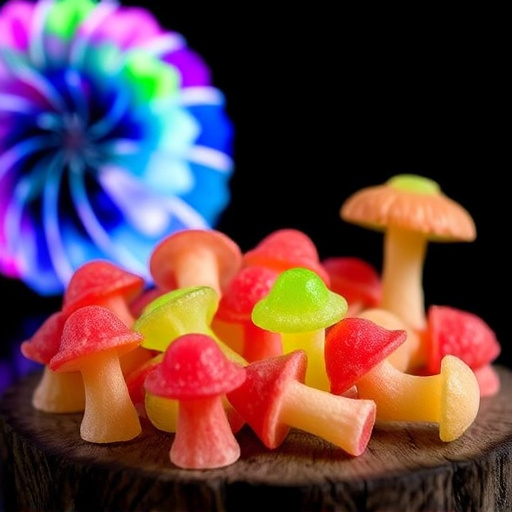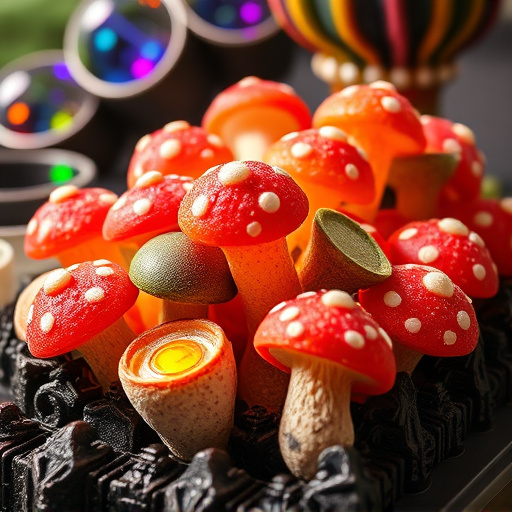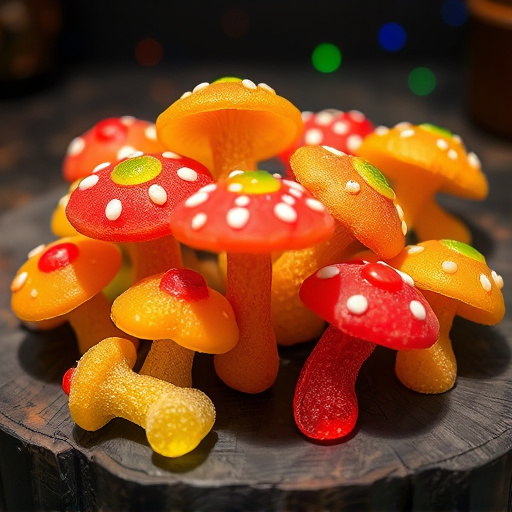Magic Mushroom Gummies are modern, controlled doses of psilocybin in a chewy candy format, offering an accessible way to explore altered states of consciousness and enhanced neural connectivity. By targeting serotonin receptors, these gummies can improve mood, reduce anxiety, and stimulate creative thinking. However, they carry risks of intense psychological effects and unpredictable outcomes, necessitating professional guidance for safe and effective use.
“Unraveling the intriguing world of Magic Mushroom Gummies: a modern twist on traditional psychedelics. These innovative treats infuse the powerful compounds found in magic mushrooms, such as psilocybin, into delicious gummy forms. But what exactly happens when you consume them? This article explores the science behind Magic Mushroom Gummies and their impact on neural connectivity. From understanding how these substances interact with the brain to uncovering potential benefits and risks, we delve into this captivating topic.”
- What Are Magic Mushroom Gummies?
- How Do Magic Mushrooms Affect the Brain?
- The Potential Benefits and Risks of Using Magic Mushroom Gummies
What Are Magic Mushroom Gummies?
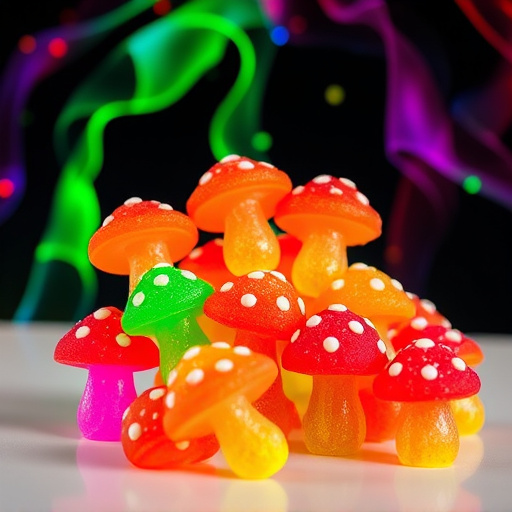
Magic Mushroom Gummies are a modern twist on traditional psychedelic experiences, offering a convenient and often more controlled way to explore altered states of consciousness. These gummies infuse psilocybin, the active compound found in magic mushrooms, into a chewy candy format. By doing so, they provide an accessible entry point for individuals curious about the potential benefits of psychedelics, such as enhanced neural connectivity.
Unlike their solid mushroom counterparts, gummies allow for precise dosing and easier administration, making them popular among those seeking therapeutic or recreational experiences in a more familiar and less intimidating form. The process of taking these edibles is straightforward: consume a gummy, wait for the effects to kick in (typically 30-90 minutes), and embark on a journey that may lead to profound insights, heightened creativity, and altered perceptions of reality, all while potentially strengthening neural pathways and connections within the brain.
How Do Magic Mushrooms Affect the Brain?
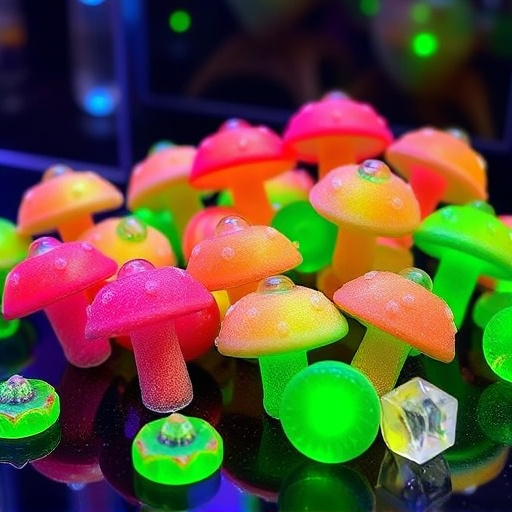
Magic mushrooms, or psilocybin mushrooms, contain compounds that affect the brain’s chemistry, particularly targeting serotonin receptors. When consumed, these mushrooms can alter perception and cognitive functions, leading to heightened creativity and profound emotional experiences. The effects on the brain go beyond simple alteration of consciousness; they impact neural connectivity.
Research suggests that magic mushrooms can temporarily rewire neural pathways, enhancing communication between different regions of the brain. This phenomenon is often associated with increased creativity and a deeper understanding of self. The experience induced by these mushrooms has been linked to improved mental clarity and even potential therapeutic benefits for treating conditions like depression and anxiety, as it promotes novel ways of thinking and processing information.
The Potential Benefits and Risks of Using Magic Mushroom Gummies
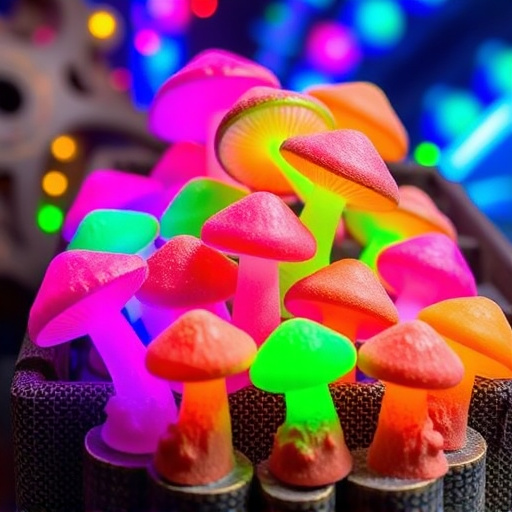
Magic mushroom gummies are a modern twist on traditional psychedelic compounds, offering a convenient and potentially therapeutic way to explore consciousness. These edible treats infused with psilocybin, the active compound found in certain types of mushrooms, have gained attention for their reported benefits in enhancing mental health and well-being. Studies suggest that psilocybin can improve mood, reduce anxiety, and promote creative thinking by altering neural connectivity in the brain. This aspect, particularly the manipulation of neural connections, has sparked interest among researchers exploring the potential of magic mushroom gummies as a tool for psychotherapy, offering an alternative approach to treating depression, PTSD, and other mental health disorders.
However, alongside these promising applications, there are also risks associated with consuming magic mushroom gummies. Like any psychedelic substance, psilocybin can induce intense psychological effects, including altered perceptions, hallucinations, and increased anxiety or fear in certain individuals. These experiences may be challenging, especially for those without a supportive environment or previous experience with psychedelics. The impact on neural connectivity, while potentially beneficial, could also lead to unpredictable outcomes, especially if the dosage is not carefully controlled. Therefore, it’s crucial to approach magic mushroom gummies with caution, seeking professional guidance, and prioritizing safety measures to ensure a positive and therapeutic experience.
Magic mushroom gummies represent a modern twist on traditional psilocybin-containing mushrooms, offering a convenient and potentially therapeutic way to explore neural connectivity. While their effects on brain chemistry are well documented, further research is needed to fully understand the scope of benefits and risks associated with regular use. As with any substance, informed decision-making and professional guidance are essential when considering magic mushroom gummies as a means to enhance mental health and well-being.

